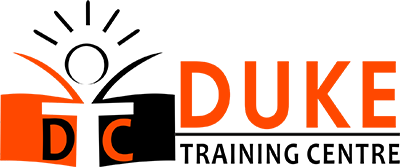MATLAB Coaching Center
MATLAB Fundamentals

Course Purpose:
This course provides a comprehensive introduction to the MATLAB technical computing environment. The course is intended for beginning users and those looking for a review. No prior programming experience or knowledge of MATLAB is assumed. Themes of data analysis, visualization, modeling, and programming are explored throughout the course. Topics include:
- Working with the MATLAB user interface
- Entering commands and creating variables
- Analyzing vectors and matrices
- Visualizing vector and matrix data
- Working with data files
- Working with data types
- Automating commands with scripts
- Writing programs with logic and flow control
- Writing functions
Course Objective:
Working with the MATLAB User Interface
Objective: Become familiar with the main features of the MATLAB integrated design environment and its user interfaces. Get an overview of course themes.
- Reading data from files
- Saving and loading variables
- Plotting data
- Customizing plots
- Calculating statistics and best -fit line.
- Exporting graphics for use in other applications
Variables and Expressions
Objective:
Enter MATLAB commands, with an emphasis on creating variables, accessing and manipulating data in vector variables, and creating basic visualizations.
- Entering commands
- Creating numeric variables
- Creating character variables
- Making and annotating plots
- Getting help
- Accessing and modifying values in variables.
Analysis and Visualization with Vectors
Objective: Perform mathematical and statistical calculations with vectors. Use MATLAB syntax to perform calculations on whole data sets with a single command.
- Performing calculations with vectors
- Creating multiple plots
Automating Commands with Scripts
Objective:
Collect MATLAB commands into scripts for ease of reproduction and experimentation. Divide scripts into logical sections for development, maintenance, and publishing.
- Using the Command History
- Creating script files
- Running scripts
- Dividing code into sections
- Publishing scripts
Analysis and Visualization with Matrices
Objective:
Use matrices as mathematical objects or as collections of (vector) data. Understand the appropriate use of MATLAB syntax to distinguish between these applications.
- Creating and manipulating matrices
- Performing calculations with matrices
- Calculating statistics with matrix data
- Visualizing matrix data
Dates and Times
Objective:
Use variables to represent and manipulate dates and time durations.
Extract components of dates and durations as numeric variables.
- Representing dates and durations
- Performing calculations with dates and durations
- Plotting with dates
- Extracting numeric components of dates and durations
Tables of Data
Objective:
Import data as a MATLAB table. Work with data stored as a table.
- Storing data as a table
- Operating on tables
- Extracting data from tables
- Modifying table
Conditional Data Selection
Objective:
Extract and analyze subsets of data that satisfy given criteria.
- Logical operations and variables
- Finding and counting
- Logical indexing
Analyzing Data from Files
Objective:
Perform typical data analysis tasks in MATLAB, including importing data from file, preprocessing data, fitting a model to data, and creating a customized visualization of the model.
- Importing from spreadsheets and delimited text files
- Dealing with missing data
- Plotting functions
- Customizing plots
Flow Control
Objective:
Create flexible code that can interact with the user, make decisions, and adapt to different situations.
- Programming constructs
- User interaction
- Flow control
- Loops
Writing Functions
Objective:
Increase automation by encapsulating modular tasks as user-defined functions. Understand how MATLAB resolves references to files and variables. Use MATLAB development tools to find and correct problems with code.
- Creating functions
- Calling functions
- Setting the MATLAB path
- Debugging with the MATLAB Editor
- Using breakpoints
- Creating and using structures







